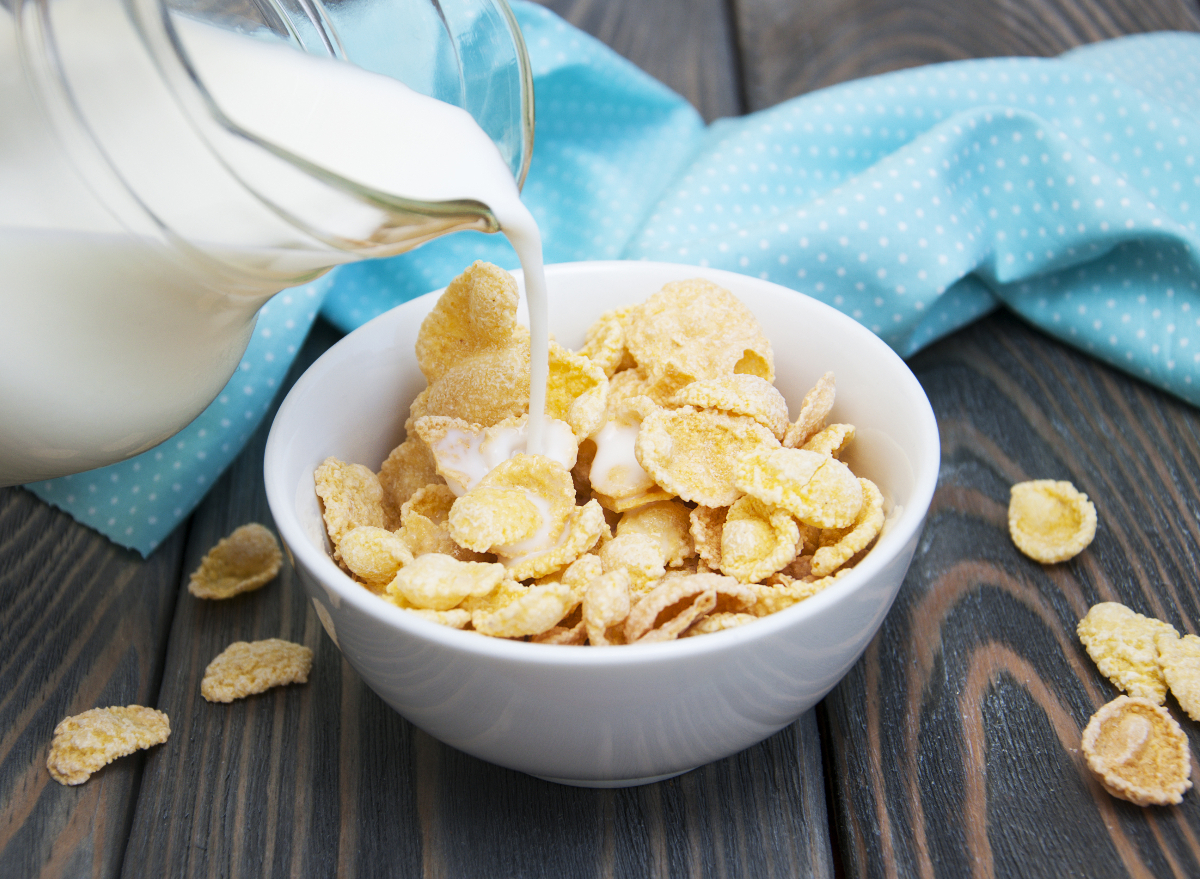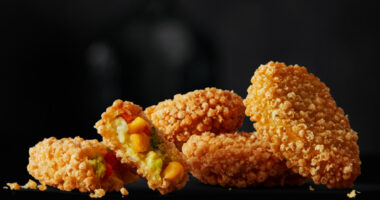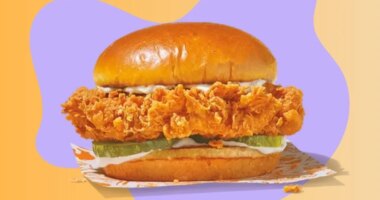Are stubborn love handles leaving you frustrated and preventing you from reaching your fitness goals? If so, you’re far from alone. According to the Centers for Disease Control and Prevention (CDC), over 100 million U.S. adults are overweight or obese. Love handles—the excess fat around the waistline—are a common trouble spot for many individuals striving for a toned and trim physique. While regular exercise and a balanced diet play a vital role in achieving a slimmer waistline, there’s another crucial factor that often goes unnoticed: the foods we eat. We’re here to break down 10 of the worst foods for your love handles foods so you know exactly what to avoid.
Trista Best, RD, a registered dietitian with Balance One Supplements, calls out these 10 common culprits that may be making your love handles worse. Avoiding these processed, calorie-dense foods will help you shed pounds and melt away excess flab around your waistline for good. Keep reading to find out the 10 worst foods for your love handles, and then check out these 4 Effective Eating Habits of People Who Lost 10 Pounds in One Month.
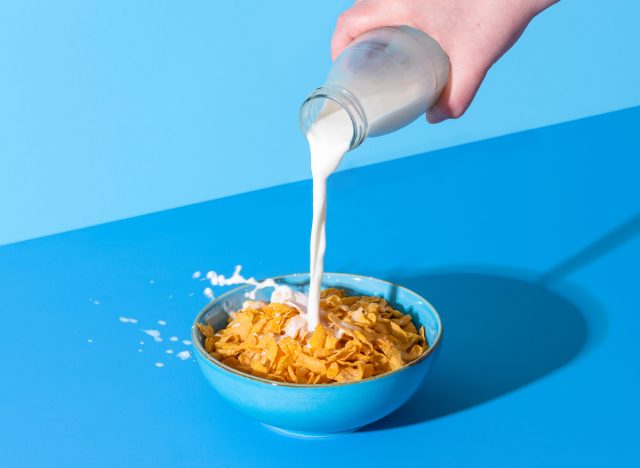

This popular breakfast option is loaded with refined sugars and lacks nutrients, making it a common culprit behind weight gain and unhealthy waistlines. Research shows that regular consumption of added sugars increases your risk of chronic diseases, including obesity.
“Sugary cereals can cause abdominal fat due to their high sugar content, which leads to rapid spikes in blood sugar levels and subsequent insulin release,” says Best. “Frequent consumption of these cereals can promote fat storage and overeating, contributing to weight gain, particularly in the abdominal area.”
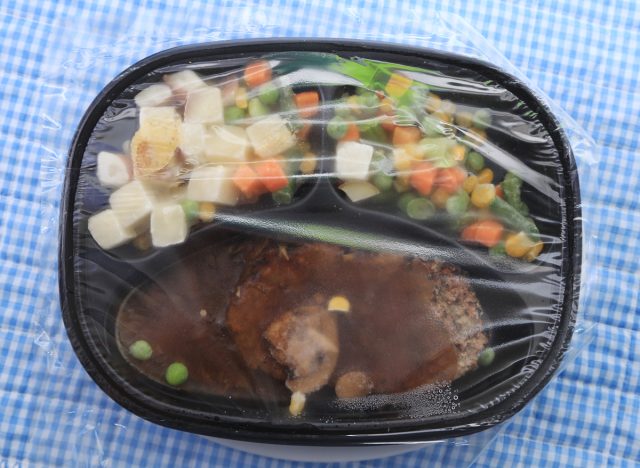

Love handles won’t budge if you indulge in frozen meals regularly. Packed with preservatives, sodium, and hidden calories, these convenience foods can sabotage your efforts to slim down. In addition, research shows that regularly eating ready-made meals has been linked with an increased risk of obesity.
“Frozen meals can contribute to abdominal fat because of their elevated sodium content, unhealthy fats, and added sugars, which can lead to weight gain and water retention,” cautions Best. “Moreover, the lack of essential nutrients and fiber in these meals may result in reduced satiety, potentially leading to overeating and an increased likelihood of accumulating fat in the abdominal region.”
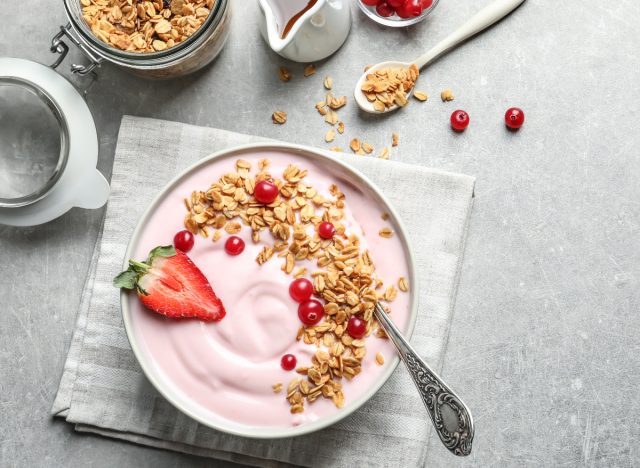

Although marketed as a health food, flavored yogurts often contain added sugars contributing to belly fat.
“Sweetened yogurts are high in sugar, which can increase calories and impact gut health. The added sugar can promote the growth of harmful bacteria and reduce the diversity of beneficial gut microbes, potentially leading to inflammation and weight gain, including abdominal fat,” explains Best.
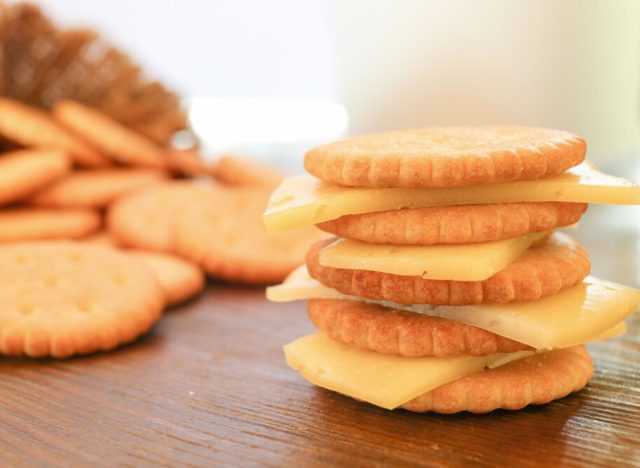

These crunchy snacks are a recipe for expanding your waistline and are high in unhealthy fats, sodium, and empty calories. Processed foods like chips and crackers significantly contribute to unwanted weight gain.
“Chips and crackers can cause weight gain, particularly abdominal fat because they’re often calorie-dense and low in nutrients,” says Best. “These snacks are easy to overconsume due to their palatability and lack of satiety, leading to excess calorie intake and an increased risk of weight gain, especially when combined with a sedentary lifestyle and unhealthy eating habits. Additionally, their high sodium content can contribute to water retention and bloating, further contributing to abdominal discomfort and the appearance of a larger waistline.”
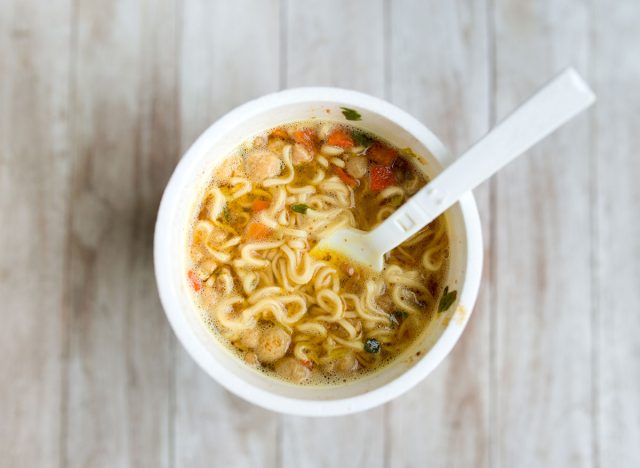

Instant noodles contain unhealthy fats and sodium—two major contributors to bloating and weight gain. A 2017 study published in Nutrition Research and Practice found that instant noodle consumption spiked the risk of obesity and cardiometabolic syndrome.
“Instant noodles like Ramen are highly processed and often high in unhealthy fats, sodium, and empty calories,” states Best. “They also lack essential nutrients like fiber, which can leave you feeling unsatisfied and more likely to overeat, leading to an excessive calorie intake and a higher risk of weight gain, especially in the abdominal area. Their processed nature leads to rapid spikes in blood sugar levels caused by the refined carbohydrates, which may promote fat storage and contribute to insulin resistance over time.”
READ RELATED: What To Do If Your Child Is a Picky Eater?
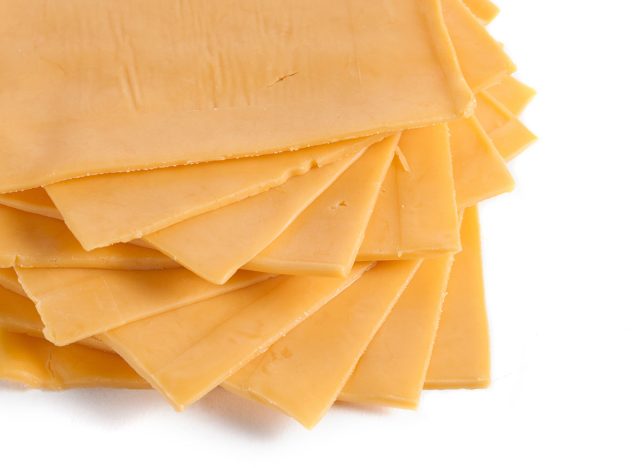

Various types of processed cheese are full of saturated fats and additives that can hinder your weight loss journey.
Best tells us, “Processed cheeses like American cheese are calorically dense and have a high-fat content, specifically trans fat. When consumed in excess, these two factors can promote inflammation and fat deposition in the abdominal region.”
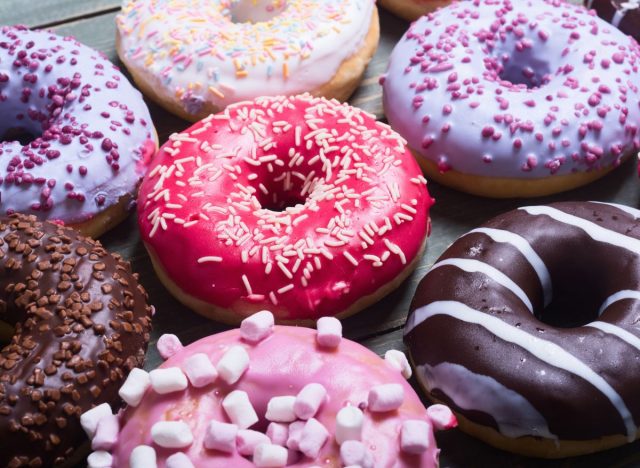

These beloved sugary treats offer minimal nutritional value and spike blood sugar levels, promoting fat storage.
“Donuts and similar breakfast pastries are high in added sugars, unhealthy fats, and refined carbohydrates. These ingredients are calorie-dense and can lead to rapid spikes in blood sugar levels, causing cravings and overeating,” explains Best.
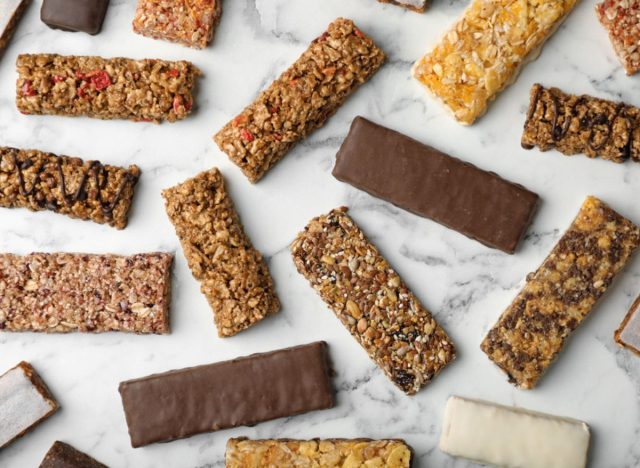

Protein bars are often disguised as nutritious but typically contain excessive sugar and unhealthy additives. Instead, choose high-protein snacks like nuts, seeds, or legumes.
“While these bars may provide protein, they can still be calorie-dense, and if consumed in excess or as part of an imbalanced diet, they can lead to an overall caloric surplus and promote fat storage, including abdominal fat,” cautions Best. “It’s essential to choose protein bars carefully, opt for those with more natural ingredients, and consume them in moderation as part of a well-balanced diet and active lifestyle.”
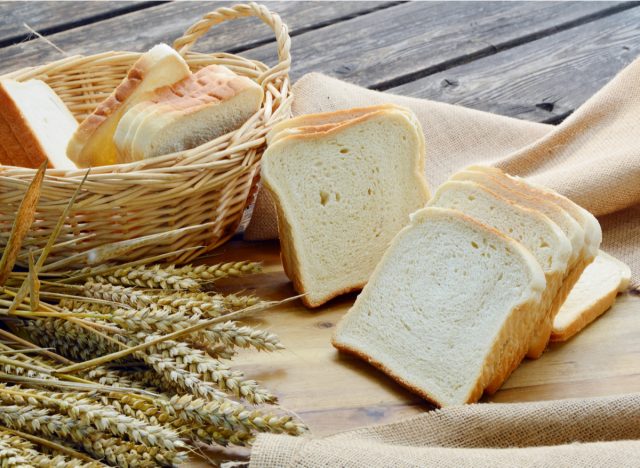

White bread is highly processed and stripped of nutrients which cause blood sugar spikes and weight gain. A 2015 study found that reduced white bread consumption was associated with having less abdominal fat.
“White bread can contribute to abdominal fat due to its high glycemic index and lack of fiber,” says Best. “When consumed, white bread can cause rapid spikes in blood sugar levels, leading to increased insulin production and fat storage. The lack of fiber in white bread can reduce satiety, leading to overeating and potential weight gain, especially in the abdominal region.”


Smoothies can definitely be part of a healthy weight loss plan. However, many store-bought smoothies contain added sugars and lack the fiber to keep you full. Make your smoothies at home with fresh fruits and greens to control the ingredients and avoid hidden sugars.
“Many commercial smoothies contain added sugars from fruit juices, sweetened yogurts, or other sweeteners, leading to increased calorie intake and potential fat storage. They may lack sufficient fiber and protein, resulting in reduced satiety, increased hunger, and overeating, further promoting weight gain, including abdominal fat,” says Best.

